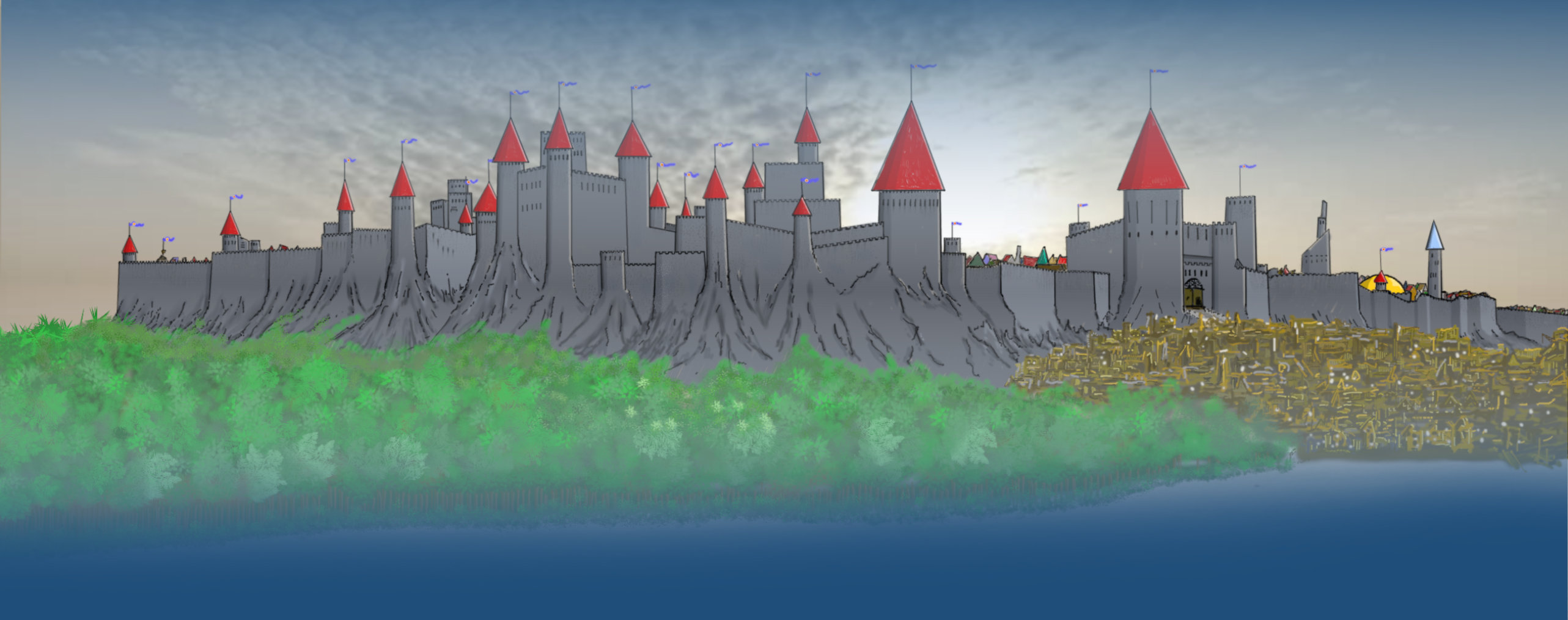Class War in Tolkien's Middle-Earth
Dated: 03 Nov, 2020
Before I start, I must state, for the record, that I am a huge fan of Middle Earth.
From the time our teacher, Mr Robinson, read us The Hobbit when I was about 9 or 10, to all the films, I have enjoyed all of it. Yes, I REALLY like ALL the films! AND I think the Silmarilion is a cracking read too, although I have struggled with some of the other over-analysed stuff from Christopher Tolkien… All my RPG experience is built on a foundation of D&D in a Middle-Earth style fantasy setting, not the Vancian Dying Earth that so much of the magic system is based on.
Ever since that first experience of the Hobbit, however, I have always had one concern – where do the Baggins family get their money? It’s probably not what young minds are supposed to take from a book about magic rings, goblins, elves and dragons, but I am a pragmatist in such things.
Now, Bilbo was a Took on his mother’s side and all that interesting geniality stuff that Tolkien loved so much is well set out, but I always wondered how they came by these lavish lifestyles when none of them appeared to actually do any work? I am not sure now, looking back, as to why I was so puzzled, especially given my own mother’s family were tenant farmers in North Yorkshire.
I think the whole Baggins and Took families were significant land owners – their luxurious opulence and care-free existences funded by the rent-paying peasant class that surrounded them.
“There’s always been a Baggins at Bag-End, and there always will be,” said Bilbo, in the films at least. Of course there was! He owns the whole village and gets rent from EVERYONE! If you read that quote with a voice of right-wing defiance it puts quite a different image into your head…
No wonder the Sackville-Baggins are so keen for Bilbo to die heirless – they would probably get the village! No wonder Merry and Pippin lived such anarchic loafer lives; they were on a healthy subsidy from their parents, living their lives free from any responsibility with no idea of the damage they were doing to the local economy when they were stealing from Farmer Maggot’s crop. Just like Bertie Worcester, they had no idea of the grinding poverty surrounding them and we, as the reader, were not to be bothered with it either.
Were the locals all so polite to the young hobbits out of genuine affection or fear of what might happen if they came to any harm? Were, indeed, all the pleasant hobbits of the village currying favour with the very people who would become, in time, their own lords and masters? It’s hard to increase rents when as a child you used to play with the person you are exploiting…
In the Shire there seems to be an absence of education – although they can read write there seems no education system in place; everyone appears to be expected to take over from their parents when they grow – no social mobility to speak of.
At the end of The Hobbit, Bag End is being stripped bare by an eager peasant class desperate for a bit of liberty and personal gain – there’s no indication of loyalty there. No sign that the friendliness demonstrated to Bilbo and Frodo is genuine; once the landlord has been absent for long enough the downtrodden rise to claim their own piece of the pie – how lucky for Bilbo they had no charismatic leader to start the revolution and bring Bolshevism to the Shire. Instead, the hobbits lack the imagination to throw off the fetters of bougeouise dictatorship.
Looking at the books through this lens, the seemingly innocent pastoral paradise of the Shire becomes a little bit more sinister; a time-capsule of the landed gentry of the upper classes running the whole show with the working classes grafting dawn until dusk to pay the rent. Exactly the situation that was undermined by the industrial revolution and the emergence of the middle-class. A hierarchy of landed gentry as a ruling elite over a resentful working class, which was then destroyed on Flanders Field and rendered irrelevant by the collapse of Empire heralded by two World Wars. Which, of course, were part of the inspiration for the whole Hobbit and the Ring story in the first place - even humble Samwise was
In fact, exactly the situation that the Founding Fathers fled from to start their New World in the Americas. Or that existed in Ireland and Scotland before the Famine and the Clearances…
Pursuing these thought experiments we discover more curious re-representations of the books:
What were the Dunedain up to? Protecting the Shire from the outside world, according to some of the texts – but from what and for whom? Perhaps they were the bully-boys of the powerful hobits; mercenaries paid to keep new ideas and rabble-rousers out of the Shire.
The end of the Lord of the Rings and the scouring of the Shire is a blatant protest against the evils of the Industrial Revolution but too late. Perhaps the Ring itself is a metaphor for the whole concept of Industrial Progress? And Smeagol a tragic Trotsky; driven by a vision of a wonderful future but even rejected by like-minded people.
It’s fun to think about, but of course I am not the first to wander these paths. “The Last Ring Bearer” is a book by Kirill Eskov written in Russian and translated into English, available as a free pdf download from many places (here for instance). It’s a different telling of the world of Middle Earth, post LOTR, and it’s Chapter Two that I find fascinating – if you haven’t sampled this then I strongly encourage you to do so, even if it is just this chapter. It gives a brilliant insight into the power of propaganda and proof that “History is Written by the Victors”.
I love the Lord of the Rings, but I love this idea too.



